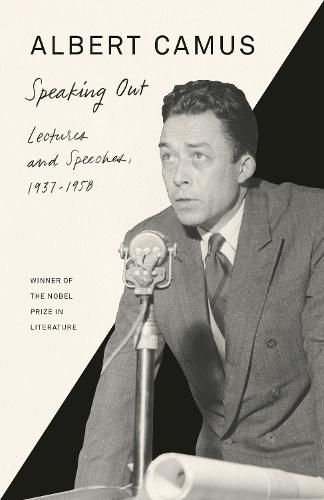Readings Newsletter
Become a Readings Member to make your shopping experience even easier.
Sign in or sign up for free!
You’re not far away from qualifying for FREE standard shipping within Australia
You’ve qualified for FREE standard shipping within Australia
The cart is loading…






The Nobel Prize winner’s most influential and enduring lectures and speeches, newly translated by Quintin Hoare, in what is the first English language publication of this collection.
Albert Camus (1913-1960) is unsurpassed among writers for a body of work that animates the wonder and absurdity of existence. Speaking Out: Lectures and Speeches, 1938-1958 brings together, for the first time, thirty-four public statements from across Camus’s career that reveal his radical commitment to justice around the world and his role as a public intellectual.
From his 1946 lecture at Columbia University about humanity’s moral decline, his 1951 BBC broadcast commenting on Britain’s general election, and his strident appeal during the Algerian conflict for a civilian truce between Algeria and France, to his speeches on Dostoevsky and Don Quixote, this crucial new collection reflects the scope of Camus’s political and cultural influence.
$9.00 standard shipping within Australia
FREE standard shipping within Australia for orders over $100.00
Express & International shipping calculated at checkout
The Nobel Prize winner’s most influential and enduring lectures and speeches, newly translated by Quintin Hoare, in what is the first English language publication of this collection.
Albert Camus (1913-1960) is unsurpassed among writers for a body of work that animates the wonder and absurdity of existence. Speaking Out: Lectures and Speeches, 1938-1958 brings together, for the first time, thirty-four public statements from across Camus’s career that reveal his radical commitment to justice around the world and his role as a public intellectual.
From his 1946 lecture at Columbia University about humanity’s moral decline, his 1951 BBC broadcast commenting on Britain’s general election, and his strident appeal during the Algerian conflict for a civilian truce between Algeria and France, to his speeches on Dostoevsky and Don Quixote, this crucial new collection reflects the scope of Camus’s political and cultural influence.